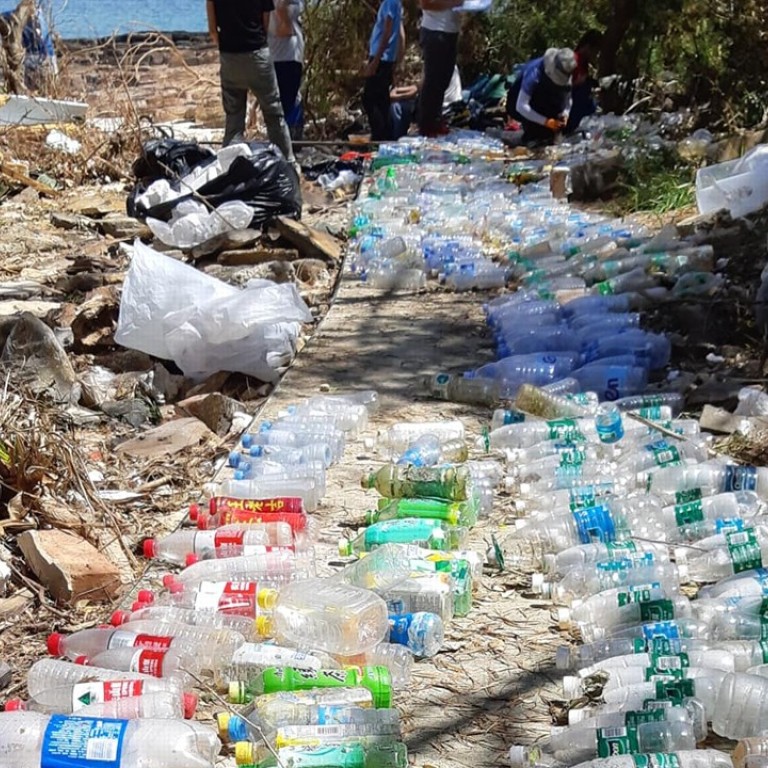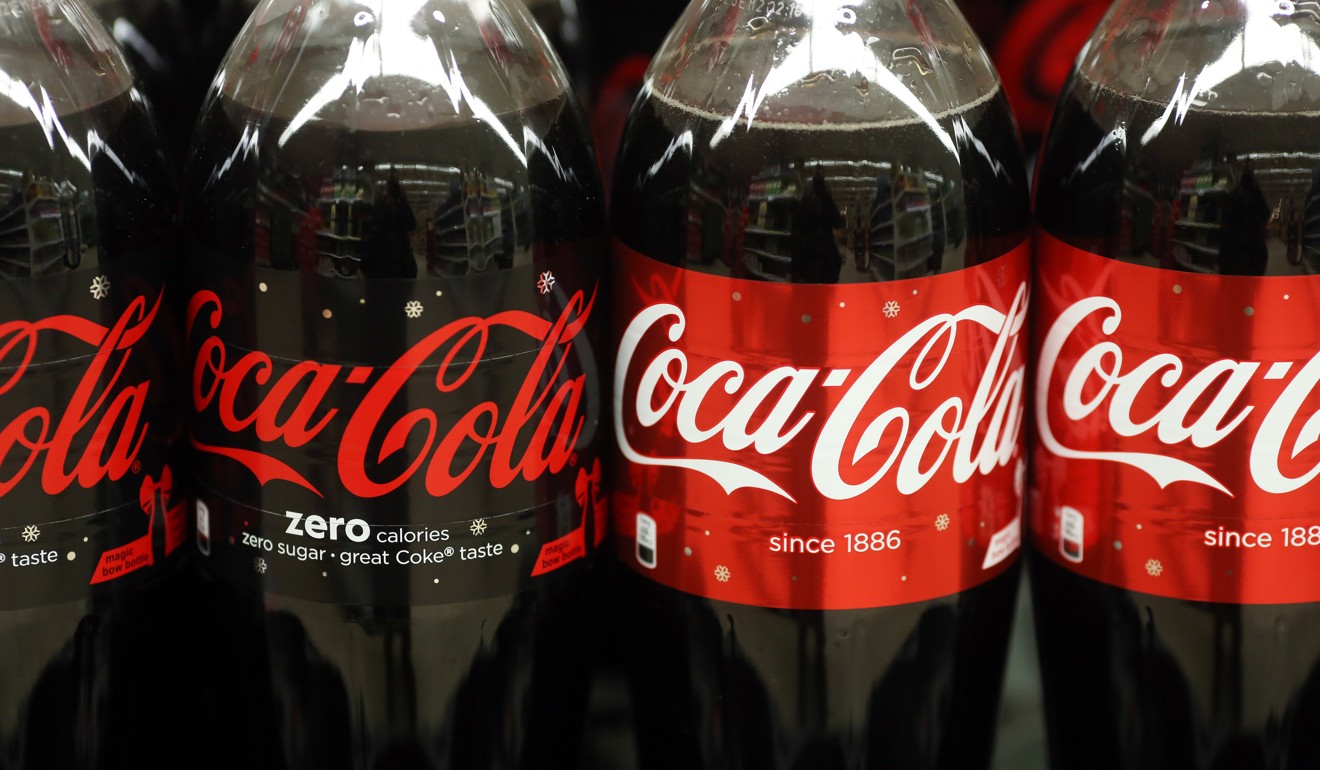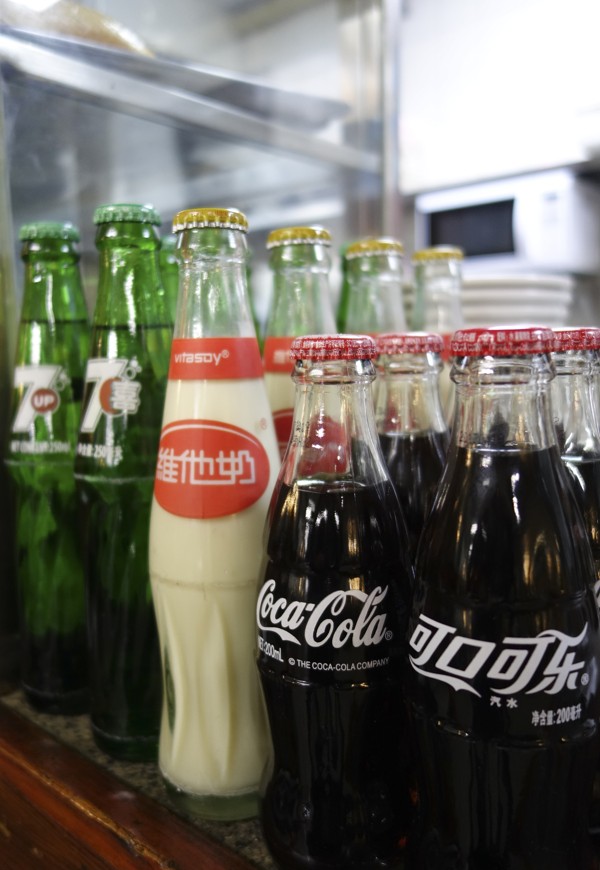
Almost quarter of plastic bottles washed up on Hong Kong beaches come from Coca-Cola Company
Study finds 23.4 per cent of containers picked up in clean-up operations this summer belonged to Coca-Cola brands, followed closely by Vita at 21 per cent
Almost a quarter of plastic bottles washed up on Hong Kong beaches come from the Coca-Cola Company, according to a survey by a local green group, which is urging producers to take responsibility for the problem.
The Green Earth organised 14 beach cleaning campaigns across the city this summer and found 328 of the 1,404 bottles it collected belonged to Coca-Cola brands.
At 23.4 per cent, the share was the highest of all producers.
“We do beach cleaning every year and the amount of ocean waste keeps growing,” said Hahn Chu Hon-keung, the group’s director of environmental advocacy. “People dropping the bottles are of course lacking in civic virtue, but do producers have a responsibility?”

Twenty brands come under the Coca-Cola umbrella in Hong Kong, including Bonaqua, Minute Maid and Aquarius.
Vita accounted for 21 per cent, and Cool 11.4 per cent.
Unilever topped a similar study carried out at beaches in the Philippines, and PepsiCo accounted for the most bottles in India, the group said, citing data from the Break Free From Plastic movement.
China’s waste ban has rocked the recycling world and revealed Hong Kong’s dire record. What next for the city’s rising mountains of trash?
Chu said a number of rarely seen items had been washed up on shorelines by Typhoon Mangkhut earlier this month, including an old 1.25 litre Sprite bottle believed to be the earliest plastic version since the company switched from glass.
Another find was a Coca-Cola bottle with a label stating the beverage was the official soft drink of the 1988 Olympics. It was nowhere near decomposing.

The Coca-Cola company said it was set to recycle plastics equivalent to its total production by 2030, but The Green Earth said the firm should speed up progress towards this goal.
The group suggested the company return to glass bottles and other recyclable materials and produce more refillable containers. Recycling would also be made easier by the company using the same material for labelling as for bottles, it said.
The Green Earth suggested Coca-Cola take the lead on producer responsibility before the Hong Kong government launched an official scheme to force plastic producers to pay for recycling, treatment and disposal. Officials have pledged to study that idea, which would also offer financial incentives to the public to recycle.
Chu urged Coca-Cola not to transfer plastic waste to developing countries.
“I hope they can treat the waste locally, instead of simply transferring the pollution,” he said.
Hong Kong’s recyclers no longer have a ready destination to send their plastic waste after mainland China this year stopped importing used plastic as part of a ban on 24 types of solid waste.
Most of Hong Kong and Taiwan’s dumped plastic bottles come from mainland China – but local drinks makers also urged to reduce waste
The Coca-Cola Company said: “We understand there is a packaging issue and we, like other companies, have a responsibility to help solve it.”
The firm said it had been exploring more sustainable packaging options and innovations, including offering a water station at sports grounds to allow consumers to buy water with their own containers. It was also looking into a Green Sponsorship Scheme to properly handle waste packaging produced by large events.
Vita said it had been collaborating with various parties to address the issue of packaging waste, including by reducing the weight of bottles and adopting more eco-friendly materials.
“This requires support not just from manufacturers but also stakeholders including the government and retailers, so the right infrastructure to collect and manage solid waste is established,” the company said.
The firm has also organised a school bottle recycling programme to educate students, and sends the containers to a government community green station for proper handling.
More than 300 million litres of Coca-Cola branded drinks were produced in the city last year, with an average of 210 servings consumed by each resident, according to a sustainability report from Swire Beverages, which bottles Coca-Cola in Hong Kong.
In 2016 more than 60,000 tonnes of plastic were produced in the city, but only 8.5 per cent was recycled.
In the past three years more than 2,000 tonnes of plastic a day have been sent to Hong Kong landfills. The material accounts for about 20 per cent of all municipal solid waste.
“There will be a conference in Indonesia next month on ocean debris,” Chu said. “It shouldn’t just be an event for corporations to put on a show.”

